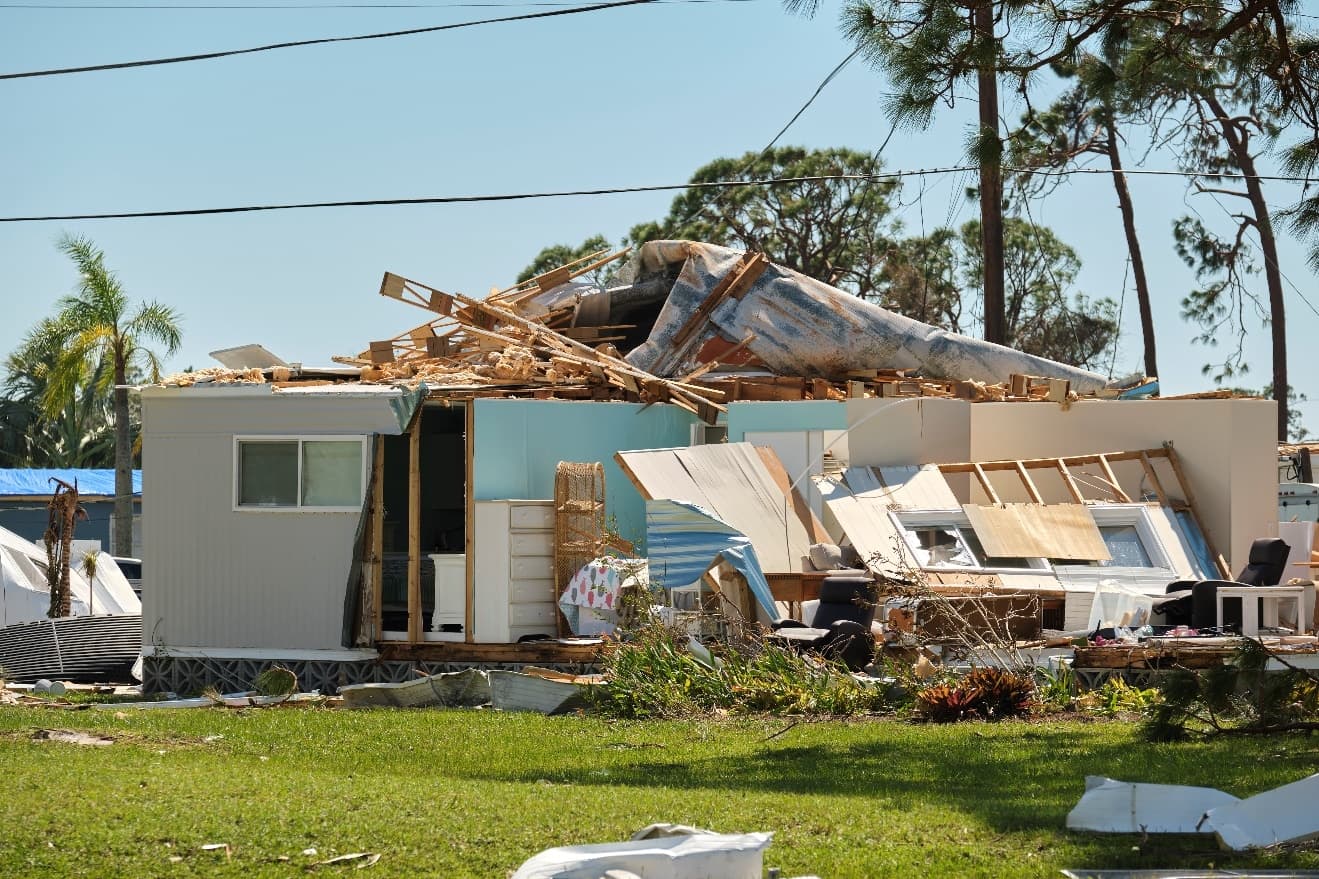
When disasters strike, the Federal Emergency Management Agency (FEMA) steps in to help communities recover and rebuild. But did you know that FEMA also offers numerous disaster relief jobs as part of their efforts? This guide will provide you with everything you need to know about FEMA disaster jobs, focusing on the types of jobs available, how to apply for FEMA contracts through the System for Award Management (SAM), and tips for navigating FEMA’s procurement process.
Common Types of FEMA Contracting Jobs
Before you decide to bid on FEMA contractor jobs, there are several steps you need to take and the first step should be to determine if you offer goods or services that FEMA needs. Here’s a quick look at some of the types of government contractors typically needed by FEMA. All of these roles are critical in ensuring the success of FEMA’s disaster response and recovery operations.
- Construction & Debris Removal Jobs
FEMA often contracts companies to assist with debris removal, infrastructure repair, and construction projects in disaster-affected areas.
Common Roles:
- Debris removal services (trees, building materials, etc.)
- Rebuilding damaged infrastructure (roads, bridges, utilities)
- Temporary housing construction (FEMA trailers, shelters)
- Demolition services for unsafe structures
- Ideal for: Construction companies, demolition contractors, debris removal services
- Logistics & Transportation Services
During disasters, FEMA relies on companies to provide logistics and transportation support to ensure the timely delivery of supplies.
Common Roles:
- Supply chain management
- Transportation of emergency supplies (food, water, medical supplies)
- Fuel distribution
- Fleet management
- Ideal for: Logistics companies, trucking companies, transportation services
- Medical & Health Services
FEMA contracts out medical services to provide emergency care and public health support in disaster-affected areas.
Common Roles:
- Emergency medical services (EMS)
- Public health assessments
- Mental health counseling
- Medical supply distribution
- Ideal for: Medical providers, hospitals, health consultants, mental health professionals
- Cleaning & Sanitation Services
Post-disaster cleanup is essential to prevent health hazards and prepare affected areas for recovery so there are typically many disaster cleanup jobs available.
Common Roles:
- Hazardous waste removal
- Water damage restoration
- Mold remediation
- General cleaning and sanitation
- Ideal for: Cleaning companies, environmental services, water damage restoration specialists
- Electrical & Utility Services
FEMA often contracts companies to assist with restoring power and repairing damaged utility infrastructure after a disaster.
Common Roles:
- Power line repair and restoration
- Generator installation and maintenance
- Water and wastewater system repair
- Temporary power solutions
- Ideal for: Electricians, utility companies, power restoration specialists
- IT & Communications Services
Disasters often cause communication breakdowns, and FEMA contracts companies to help restore IT infrastructure and communication systems.
Common Roles:
- Satellite communications setup
- Emergency radio systems
- IT network restoration
- Cybersecurity services
- Ideal for: IT companies, telecommunications providers, cybersecurity experts
- Temporary Housing Services
FEMA contracts companies to provide temporary housing solutions for displaced individuals and families.
Common Roles:
- Setup and maintenance of FEMA trailers
- Rental property management
- Hotel and lodging services for evacuees
- Inspection services for temporary housing
- Ideal for: Property management companies, housing contractors, hotel chains
- Procurement & Supply Services
FEMA needs a constant supply of emergency goods and equipment during disaster response efforts.
Common Roles:
- Food and water supply
- Medical supplies
- Personal protective equipment (PPE)
- Cleaning supplies
- Portable toilets and sanitation supplies
- Ideal for: Procurement companies, wholesalers, manufacturers, distributors
- Security & Safety Services
Maintaining safety and security in disaster zones is critical. FEMA contracts security services to help with crowd control and protection of assets.
Common Roles:
- Private security services
- Access control for disaster sites
- Emergency response planning
- Safety inspections
- Ideal for: Security firms, safety consultants, risk management professionals
- Public Relations & Outreach Services
FEMA often contracts companies to handle public communication and outreach to help disaster-affected communities understand the resources available to them.
Common Roles:
- Community outreach programs
- Translation services
- Crisis communication strategies
- Media relations
- Ideal for: PR agencies, translation services, community engagement firms
- Administrative & Support Services
FEMA also contracts out administrative support roles to help with paperwork, data management, and compliance reporting.
Common Roles:
- Grant management
- Document processing
- Accounting and auditing
- Data entry and record-keeping
- Ideal for: Administrative services companies, grant management firms, accounting firms
- Engineering & Environmental Services
FEMA requires engineering expertise to assess structural damage and provide environmental impact assessments after disasters.
Common Roles:
- Structural damage assessments
- Geotechnical surveys
- Environmental impact assessments
- Flood risk analysis
- Ideal for: Engineering firms, environmental consultants, surveyors
- Inspection & Assessment Services
FEMA hires inspectors to assess damage and determine eligibility for disaster relief funds.
Common Roles:
- Property damage inspectors
- Infrastructure assessments
- Safety compliance inspectors
- Insurance claim inspections
- Ideal for: Inspection firms, property assessors, safety compliance experts
How to Apply for FEMA Contracts
To work on FEMA disaster relief jobs, you need to apply for contracts through the System for Award Management (SAM). SAM is the official U.S. government system that consolidates the capabilities of multiple federal procurement systems. Whether you wish to bid on FEMA contracts or fed contracts from any government agency, you must complete SAM registration.
SAM Registration can be a complicated process, and the difficulties associated with registration often discourage people from becoming a government contractor. Hiring a third-party SAM registration provider can be an easy way to avoid the hassles of SAM registration and we can help.
At Federal Contractor Registry, we handle hundreds of SAM registrations and SAM renewals every year. We can complete your registration quickly and 100% accurately and also will help with several other necessary steps, including:
Applying For The Unique Entity Identifier (UEI):
Before registering in SAM, you must obtain a UEI number, which is a unique number that identifies your business. This is a crucial step as the federal government uses this identifier for all procurement activities. Your Federal Contractor Registry specialist will assist you with this process.
The SAM Notarized Letter Requirement:
If you’ve never completed SAM registration before, you will need to send a notarized letter to the Federal Service Desk, identifying the person or persons at your company that are authorized to make changes to your SAM account.
This person is known as an Entity Administrator. We can provide you with a template for this letter to ensure that you fill it out properly as this can be complex and failing to send in this letter may result in a suspension of your SAM account.
Small Business Administration (SBA) Assistance:
The SBA offers a myriad of services for small businesses, but it also sponsors several government contracting programs. The federal government sets aside a portion of all contracting dollars specifically for small businesses, and these are known as “set-asides.”
In order to qualify for these small business set-asides, you must sign up with the SBA and link your SBA account to your SAM account, and we can help with this entire process. We also can determine which set-aside programs are the best fit for your business. For instance, you might qualify for HUBZone certification or perhaps qualify for 8a certification or perhaps your business qualifies as a Service-Disabled Veteran-Owned Business (SDVOB). There are contacts set aside for businesses in these programs as well as several others.
Tips for Navigating FEMA’s Procurement Process
Successfully navigating FEMA’s procurement process requires understanding their specific needs and requirements. Here are some tips to help you:
Research FEMA’s Needs: Before applying, research the types of projects FEMA typically undertakes and what roles they frequently contract out. This knowledge will help you tailor your application to meet their needs.
Understand Contract Requirements: Each contract will have specific requirements. Carefully read the request for proposals (RFP) documents to understand what FEMA expects from contractors.
Highlight Relevant Experience: When applying for contracts, emphasize your previous experience related to disaster relief or similar projects. This experience is valuable and can set you apart from other applicants.
Prepare for Compliance Audits: FEMA contractors must adhere to strict compliance standards. Be prepared for audits and ensure your business practices align with federal regulations.
Network with Other Contractors: Building a network of other FEMA contractors can provide valuable insights into the procurement process and help you navigate challenges.
Working as a FEMA contractor offers a unique opportunity to contribute to disaster relief and recovery efforts. Understanding the types of jobs available, how to apply through SAM, and tips for navigating the procurement process can position you for success.
By becoming a registered federal contractor, you join a dedicated team committed to helping communities recover and thrive after disasters. No matter what type of business you manage, there’s likely a place for you in FEMA’s efforts to rebuild and restore after disaster strikes. Of course, there are hundreds of additional federal agencies as well as state government agencies that also utilize civilian contractors so be sure to study all of your potential contracting opportunities.
Ultimately, disaster relief jobs are a cornerstone of both recovery and economic stabilization for affected areas. With the right preparation and understanding, you can play a crucial role in the vital work that FEMA provides, and we can help you get started with fast, accurate SAM registration. To access our services, simply click on the green New Registration tab on our homepage.
